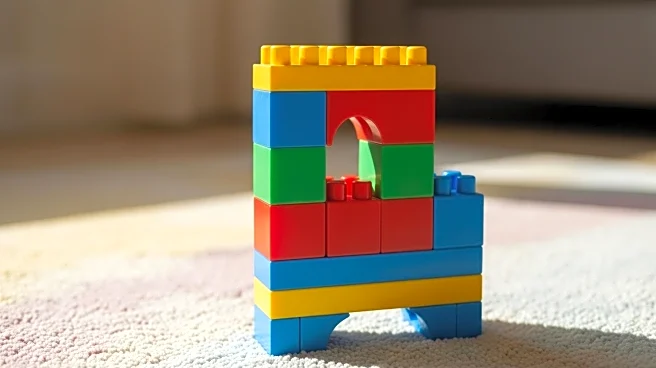What is the story about?
What's Happening?
Professor Nick Turk-Browne from Yale University is investigating the phenomenon of infantile amnesia, which refers to the inability of adults to recall specific events from their early childhood. The research aims to determine whether memories are formed during infancy but become inaccessible later, or if memory formation begins only after a certain age. Turk-Browne's study involved scanning the brains of 26 babies aged four months to two years, measuring hippocampal activity as they were shown images. The study suggests that the hippocampus, responsible for memory storage, may begin encoding memories by the age of one. This challenges previous beliefs that memory formation starts only when the hippocampus is fully developed, around four years of age.
Why It's Important?
Understanding infantile amnesia has significant implications for developmental psychology and neuroscience. If babies can form memories, it could reshape theories about early childhood development and the role of the hippocampus. This research may influence how caregivers and educators approach early childhood learning and memory retention strategies. Additionally, it could lead to advancements in understanding memory-related disorders and conditions, potentially offering insights into how early experiences shape cognitive development. The findings could also impact the way society perceives the importance of early childhood experiences and their long-term effects.
What's Next?
Further research is needed to confirm whether the memories formed in infancy remain stored and can be accessed later in life. Turk-Browne's team plans to continue exploring the mechanisms of memory formation and retrieval in infants. This could involve longitudinal studies tracking memory development from infancy through adulthood. The research may also prompt other scientists to investigate similar phenomena in different age groups or species, potentially leading to breakthroughs in memory science. The study's findings could eventually influence public policy regarding early childhood education and parental guidance.
Beyond the Headlines
The study raises ethical questions about the manipulation of memory and the potential for artificially activating dormant memories. It also touches on the philosophical aspects of consciousness and identity, as understanding memory formation could alter perceptions of self-awareness and personal history. The research may lead to discussions about the reliability of childhood memories and their impact on identity formation. Additionally, it could spark debates about the implications of memory manipulation technologies and their use in therapeutic settings.

















